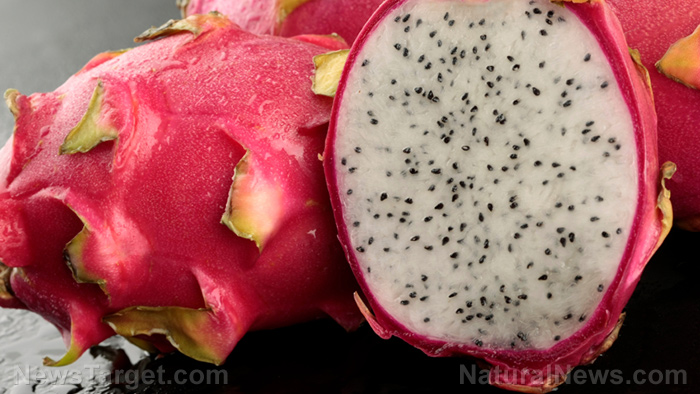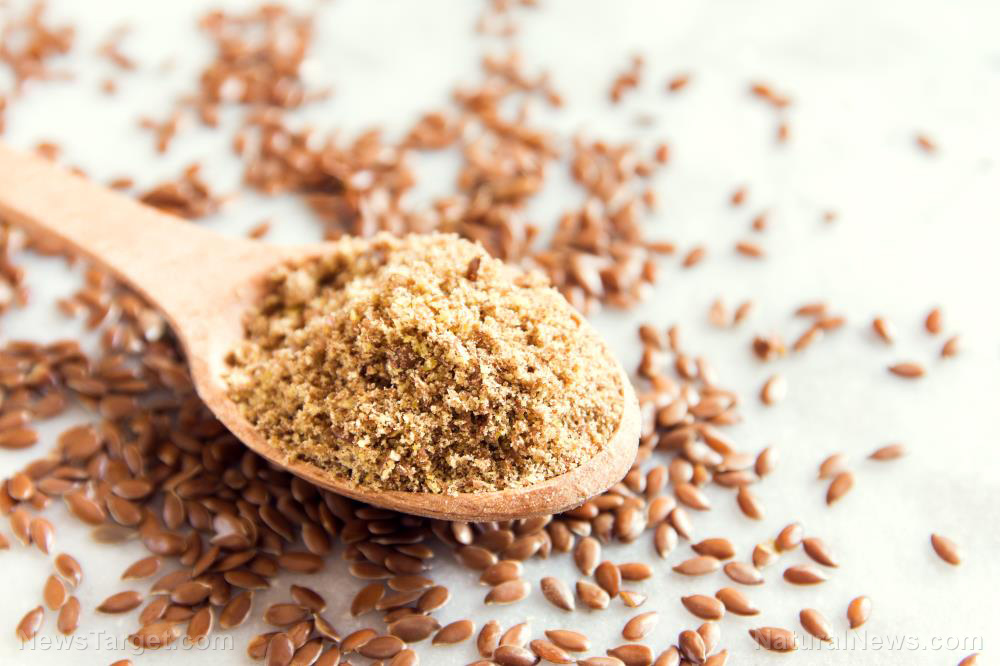Ginger: Prevent and treat common diseases with this powerful natural medicine
10/22/2019 / By Melissa Smith

Ginger root (Zingiber officinale) is an herb that belongs to the same family as turmeric and cardamom. Aside from being a common cooking spice, ginger is also a powerful medicinal herb. Here are five diseases that ginger can help treat and prevent.
Stroke
Ginger can be beneficial for people who experienced a stroke – the fifth leading cause of death in the U.S. – thanks to its antioxidant and anti-inflammatory properties.
In a 2006 study, researchers tested the effect of ginger-salt moxibustion treatment on people suffering from stroke-induced brain damage, which caused urinary disorders. Moxibustion treatment is a type of heat therapy where materials are warmed and placed on the skin. The researchers found that the treatment caused less frequent urination, less urgency to urinate, and reduced incontinence. These results suggested that ginger-salt moxibustion is a safe and effective therapy for urination problems post-stroke.
Oxidative stress and inflammation contribute to blood supply restriction, which is a main factor of stroke. This can lead to brain cell death. Conversely, antioxidant and anti-inflammatory substances can potentially prevent this.
A 2016 study examined whether 6-shogaol, one of the active compounds of ginger known to have powerful anti-inflammatory and antioxidant properties, exhibits a neuroprotective effect in mice. Researchers found that a seven-day treatment with ginger significantly reduced neurological deficit scores and mean infarct area of mice, which suggested the restoration of healthy blood flow to the brain. They also saw improved behavior and reduced inflammatory markers in the brain of mice. Taken together, these findings suggested that 6-shogaol can improve the outcomes of stroke-induced brain damage and potentially prevent stroke. (Related: Ginger every day? There’s a reason why this spectacular root is so popular.)
Heart disease
People with high blood pressure and heart disease may find ginger to be beneficial. Ginger is used in traditional medicine for treating heart disease, hypertension, and palpitations. In a study on diabetic rats, researchers found that ginger significantly reduced heart structural abnormalities. Another study evaluated the effect of daily ginger consumption on hypertension and coronary heart disease. Researchers found that daily ginger intake reduced the risk of these illnesses.
Cancer
Studies show that ginger has cancer-fighting properties – which can mostly be attributed to the anti-inflammatory and antioxidant effects of 6-shogaol. A study published in PLOS revealed that this compound is 10,000 times stronger and more effective than the conventional chemotherapy drug taxol in targeting cancer stem cells at the root of cancer malignancy.
Researchers also found another compound that has been reported to have anti-tumor properties. A compound called 6-gingerol exhibited a cytotoxic effect on human and animal cancer cells. It inhibited cancer cell growth and contributed to the death of cancer cells, according to a study published in the Journal of Agricultural and Food Chemistry. These compounds also don’t harm healthy cells., unlike conventional cancer treatments. Ginger also relieves nausea often caused by the treatments.
Diabetes
Ginger is beneficial for people with diabetes. A study published in the journal Planta Medica reported that ginger may improve long-term blood sugar control for people with Type 2 diabetes. The study’s researchers found that gingerol – the major active compound of the ginger rhizome – can boost glucose uptake into muscle cells without using insulin, which may eventually help manage high blood sugar levels.
Ginger also treats and protects against diabetic-induced complications, such as kidney problems. Impaired glucose metabolism leads to oxidative stress, protein glycation, and the formation of free radicals. Ginger’s antioxidant effect can reduce free radicals that damage kidneys. A study on diabetic rats showed that an eight-week supplementation with ginger increased their blood antioxidant levels and significantly reduced kidney damage.
Diarrheal diseases
Ginger has antibacterial properties. Together with its antioxidants, ginger makes a great natural remedy for diarrheal diseases – infections in the intestinal tract caused by bacterial, viral, and parasitic organisms. Lab and animal studies show that ginger fights against bacteria that cause diarrhea and reduces the condition’s severity.
Consuming ginger is generally safe. However, in rare cases, it can cause an allergic reaction and can interact with many drugs. Therefore, it is best to consult your health provider if you’d like to add ginger to your health regimen.
Sources include:
Tagged Under:
RECENT NEWS & ARTICLES
COPYRIGHT © 2017 SUPERFOODS NEWS



















